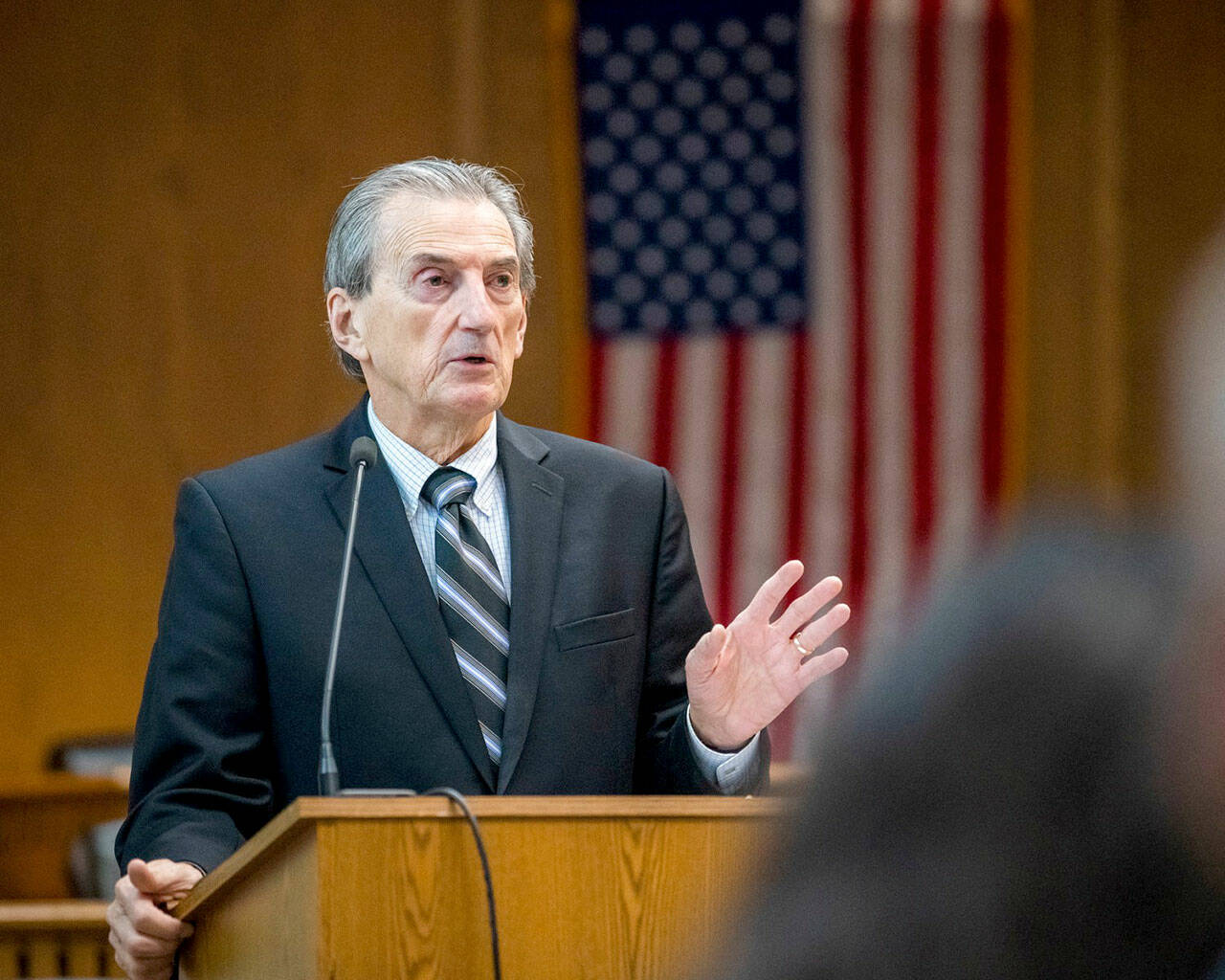PORT ANGELES — When it comes to election polls, seeing which candidate appears to be winning is the least interesting thing about it for Stuart Elway.
It’s what the people surveyed thought about the candidates and the issues that the veteran pollster wants to know. And, he would like the public and the media to appreciate how information gleaned from polls can provide meaningful insights into issues that effect them.
Elway will talk about Washington state’s transition from a swing state to a dependable blue one and about the upcoming 2024 election at 5:30 p.m. Tuesday at Field Arts & Events Hall, 219 N. Oak St. “Red & Blue in The Evergreen State” is presented free as a First Fed Community Conversation, and spots can be reserved on the Field Arts & Events Hall website. Doors will open at 4:30 p.m.
Elway began his strategic communications company, Elway Research, 50 years ago. In 1992 he began “The Elway Poll,” a non-partisan quarterly survey of Washington voters that has continued through a partnership with Crosscut and KCTS 9.
The Crosscut-Elway Poll (like other reputable polls) asks survey participants questions beyond “who do you plan to vote for?” The answers to those 30-40 questions can offer important observations about public opinion, but don’t often make it into the headlines, Elway said.
“How you feel about the future? What are the issues that are driving your vote?” Elway said. “That’s where I think the valuable information is, but it’s not as grabby as ‘Biden leads Trump.’”
The Elway Poll uses a combination of land line interviews, cell phone interviews and an online survey to query a random sample of 400 voters from around the state. Along with issue-specific information, it collects demographic data like age, income, party affiliation and education.
A good public opinion poll accurately represents the views of all of the different groups within a population — whether that is Washington state or the United States — at a specific point in time.
“It’s essentially is a systematic reading of what the public is thinking about particular issues,” Elway said.
Researchers use many methods to ensure a poll’s accuracy — random sampling and weighting, writing good survey questions — but the results will never be perfect, Elway said.
“There are possibilities that it’s off. You may have asked the wrong question,” he said. “And we’re dealing with human beings and they may change their minds. Anybody should always take a poll with a grain of salt.”
Nonetheless, polls give us a window into public opinion about legislative priorities, policing, political attitudes, responses to the pandemic and even waste disposal that elections can’t.
And, contrary to what much of the public believes and the media promotes, polls are not intended to forecast election outcomes.
“A pollster will tell you until he is blue in the face that we can’t predict the future,” Elway said. “But when you watch TV or read stories, they’re always cast as a prediction. People will say, ‘Well, the polls were wrong because they said X was going to win by two points but candidate Y won by one point.’”
Yet, despite polling’s checkered past predicting presidential elections, they continued to capture the interest of the press, the public and political parties.
That was unlikely to change, Elway said. Nonetheless, recognizing the value of polls, as well as their limitations, was necessary for understanding what the public thought about issues that were important to them.
For information, go to fieldhallevents.org/#/events/93154
Reporter Paula Hunt can be reached at 360-425-2345, ext. 50583, or by email at paula.hunt@peninsuladailynews.com.

